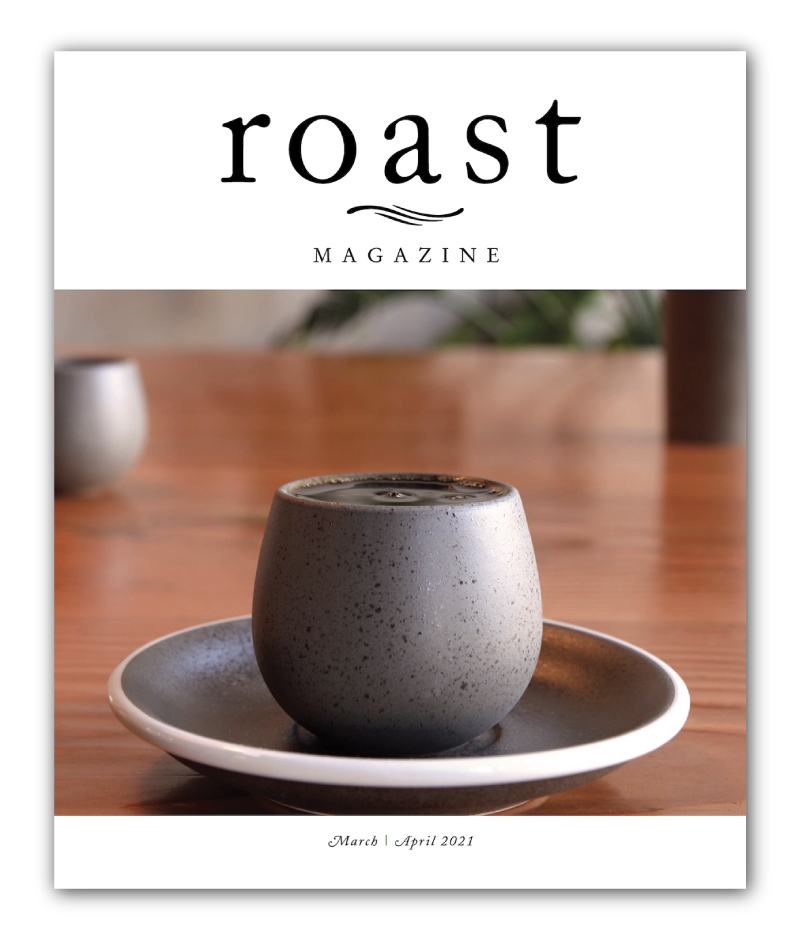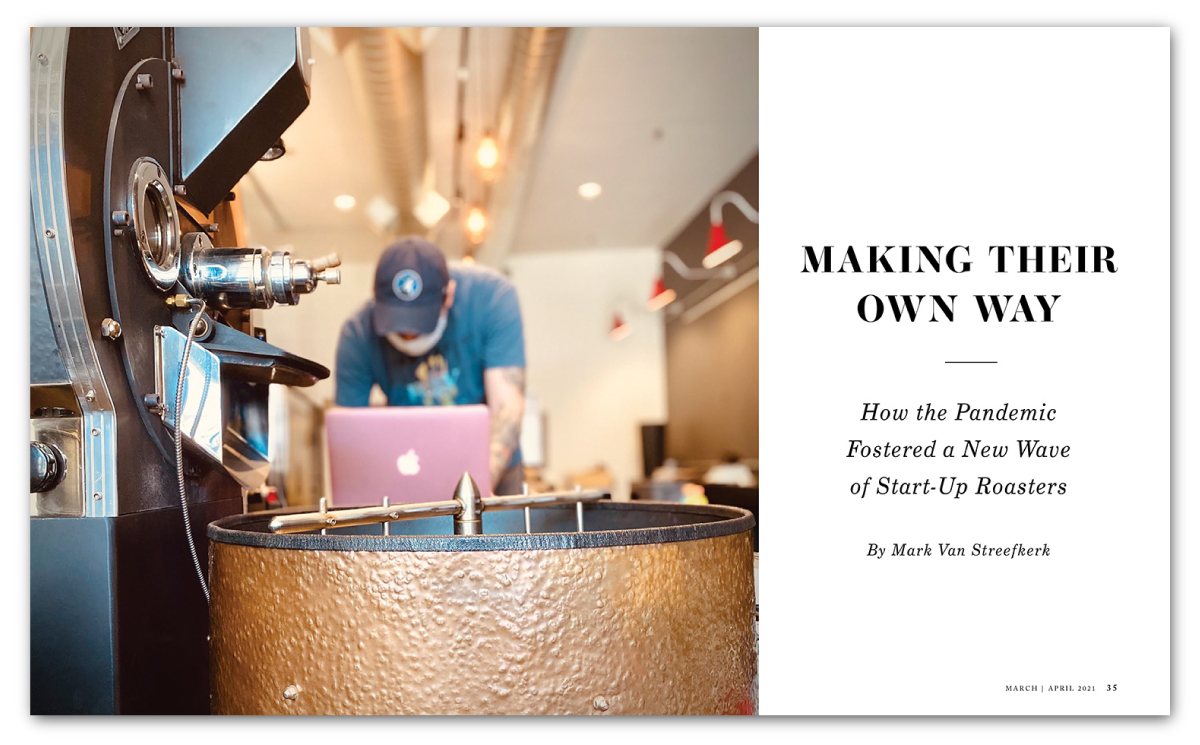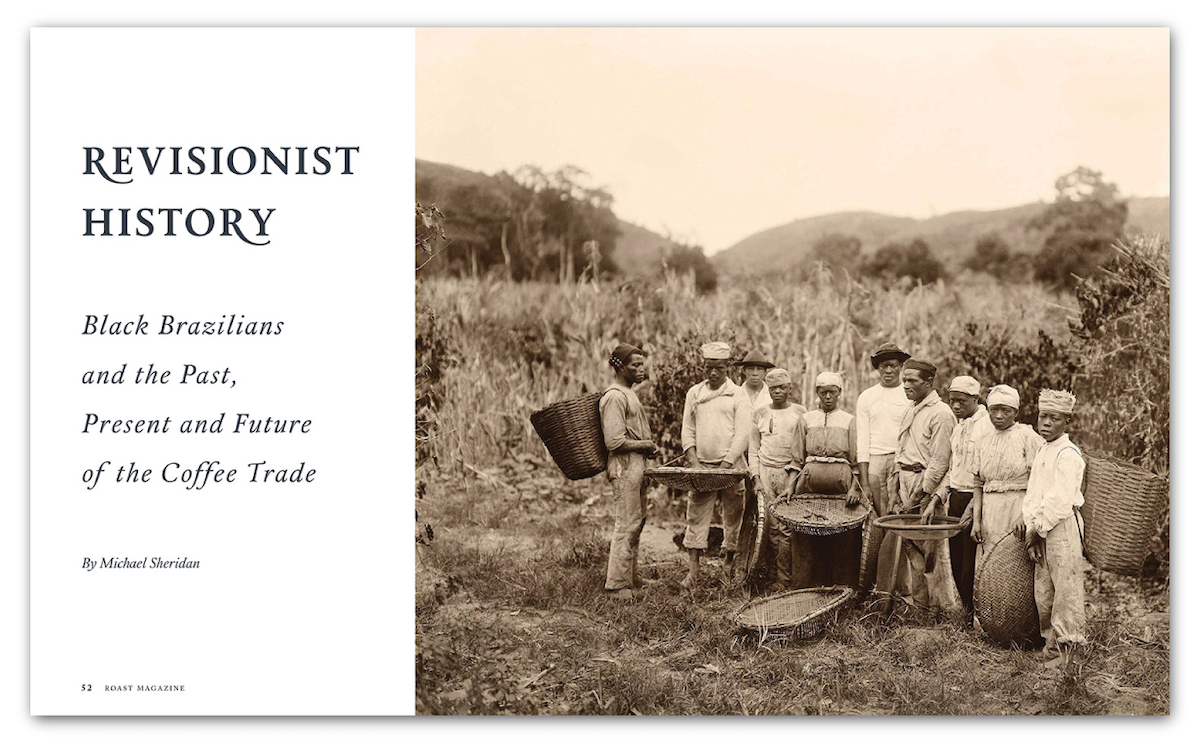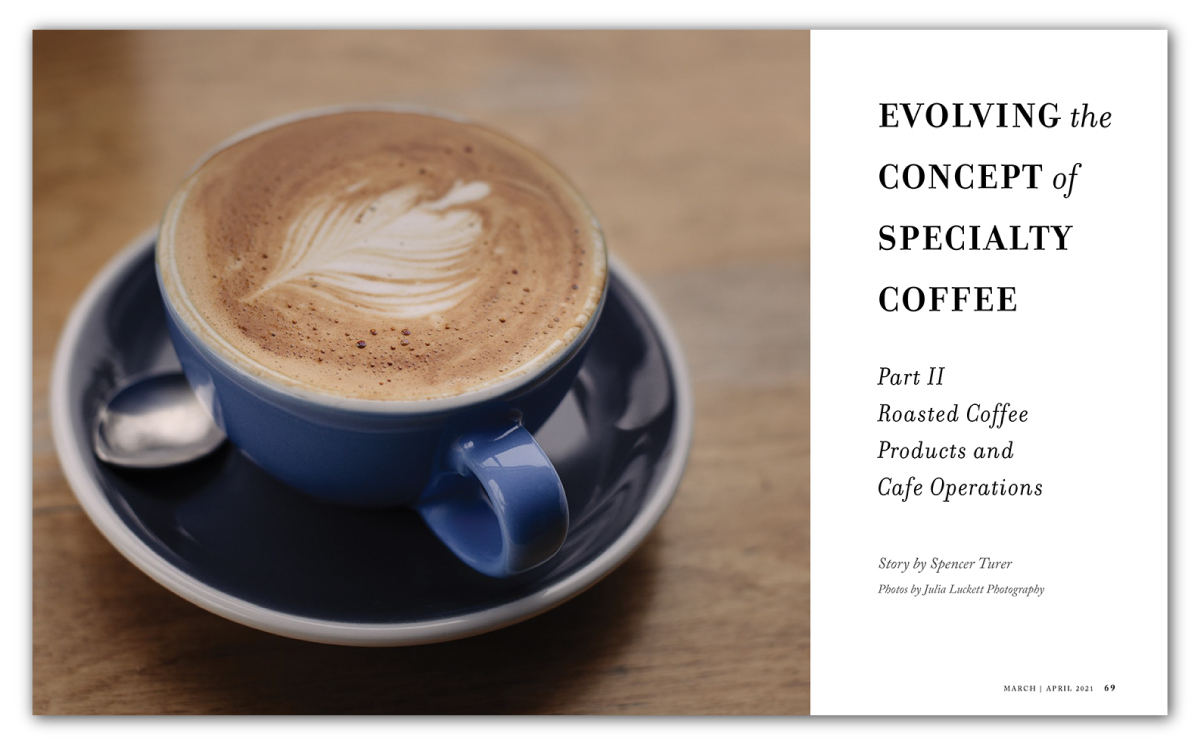 The March/April 2021 issue of Roast is out now. It features articles on a new wave of startup roasters, a history of Black Brazilians in coffee, and the second installment of an exploration on how the concept of specialty coffee is evolving.
The March/April 2021 issue of Roast is out now. It features articles on a new wave of startup roasters, a history of Black Brazilians in coffee, and the second installment of an exploration on how the concept of specialty coffee is evolving.
Columns cover adaptive capacity and how it can help coffee farmers address a changing climate, and a look at the rise of specialty instant coffee.
Subscribe to the print edition of Roast to receive upcoming issues, or purchase the print version of the March/April issue. Roast print subscribers also receive complimentary digital access to the issue.
Inside This Issue
 In “Making Their Own Way: How the Pandemic Fostered a New Wave of Start-Up Roasters,” Mark Van Streefkerk looks at how the pandemic created an opportunity for some coffee roasting professionals to pivot into business ownership, many utilizing shared roasting spaces and services.
In “Making Their Own Way: How the Pandemic Fostered a New Wave of Start-Up Roasters,” Mark Van Streefkerk looks at how the pandemic created an opportunity for some coffee roasting professionals to pivot into business ownership, many utilizing shared roasting spaces and services.
While cafes have pivoted to online sales and coffee subscriptions, circumstances of the pandemic actually favor a different actor: the start-up (or nano) roaster. Much like 2020’s wave of ghost kitchens, “virtual restaurants” with no brick-and-mortar location but an often-shared professional preparation facility, these start-up roasters are finding ways to succeed during covid-19.
 The next feature in this issue, “Revisionist History: Black Brazilians and the Past, Present and Future of the Coffee Trade” by Michael Sheridan, examines the slave trade’s effects on coffee plantations over the past few centuries, and looks at some of the work being done to shed light on this topic today.
The next feature in this issue, “Revisionist History: Black Brazilians and the Past, Present and Future of the Coffee Trade” by Michael Sheridan, examines the slave trade’s effects on coffee plantations over the past few centuries, and looks at some of the work being done to shed light on this topic today.
Coffee wasn’t introduced to Brazil until the middle of the 18th century, but by the middle of the 19th century, Brazil was producing more coffee than any other country in the world, driving the growth of a global coffee market. Its meteoric rise was possible only because of the fact that the arrival of the coffee seed was preceded centuries earlier by two other imports from Africa: the plantation and enslaved people to work it.
 The second installment of a two-part series by Spencer Turer, “Evolving the Concept of Specialty Coffee — Part II: Roasted Coffee Products and Cafe Operations,” explores the terminology of quality ratings and the need for new definitions to be established for various concepts that are utilized within the coffee industry.
The second installment of a two-part series by Spencer Turer, “Evolving the Concept of Specialty Coffee — Part II: Roasted Coffee Products and Cafe Operations,” explores the terminology of quality ratings and the need for new definitions to be established for various concepts that are utilized within the coffee industry.
Specialty coffee is different from other products; it is merchandised to the consumer both as a raw material and a finished product, with similar terminology for both cases. Unlike many other industries, the sales and marketing terms used for raw materials are often synonymous and cross-referenced with those for the consumer. At each point in the supply chain, the seller strives for high quality designation and product differentiation to garner increased revenue. The concept of specialty has now evolved in different directions with similar terminology and contrasting definitions, which causes great confusion for the consumer.
Features
Making Their Own Way
How the Pandemic Fostered a New Wave of Start-Up Roasters
Revisionist History
Black Brazilians and the Past, Present and Future of the Coffee Trade
Evolving the Concept of Specialty Coffee
Part II: Roasted Coffee Products and Cafe Operations
Columns
News Item
Coffee Amid the Changing Climate: How Adaptive Capacity Can Help
First Crack
New Product Spotlight
Technically Speaking
The Rise of Specialty Instant Coffee
Roaster Roundup
People Profiles
Coffee Review
Kenya, Consistent Classic
Fresh Press
Advertiser Index
Parting Shot






Comment